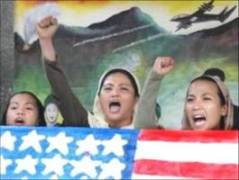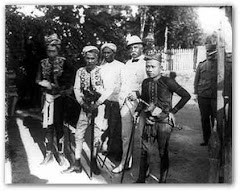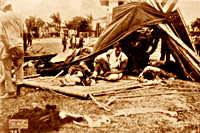


 Press Release
Press Release27 November 2007
Filipino migrants will never let the government of Gloria Macapagal-Arroyo off the hook if the execution of Marilou Ranario pushes through.
This was declared by Dolores Balladares, chairperson of the United Filipinos in Hong Kong (UNIFIL-MIGRANTE-HK) as Filipinos in Hong Kong protested in front of the Philippine Consulate General to denounce the insufficient assistance given by the government to the 35-year old OFW facing the death penalty in
The protest was conducted after
“For years, Marilou’s fate has been ignored by this government. If Marilou’s execution pushes through, the GMA administration should be made culpable for yet another OFW tragedy,” she added.
Balladares also scored presidential adviser on overseas Filipino workers, Vice President Noli de Castro for even putting the blame on Ranario for supposedly refusing to talk to her lawyers after she was imprisoned.
“VP de Castro should not dare lay fault on Ranario for his own bungled actions on her case such as his announcement in 2006 that Ranario will be freed and his recent media blitz of the probable commutation of her sentence,” she said.
The protesters also scored VP de Castro’s “lame duck excuse” of respecting the justice system of any country like
“OFWs are the main source of income for this government. At the very least, the government should exert everything within its capacity to immediately respond to OFWs who are in distress,” Balladares added.
The protesters said that the plan for GMA to write a letter of appeal to the emir of
“Should it always be the case that the axe is already poised over our heads before this government can get their acts together? This was what happened with Flor Contemplacion and we sure hope that this should not happen now,” she remarked.
The group warned of a global outcry from OFWs if the government fails to save Ranario from execution.
“Too many lives have been claimed by the GMA government. The death of an OFW brought about by the irresponsibility and ineptitude of this government is but another reason why we Filipinos abroad are all for its ouster,” Balladares concluded.#
For reference: Dolores Balladares, Chairperson, Tel. No.: 97472986


















